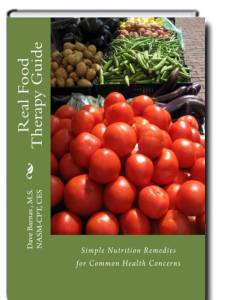
Several months ago, we discovered some research that showed the potential risks of taking too much calcium in supplementation form. Now there’s another popular vitamin supplement commonly taken to prevent colds that might also be a health risk. Vitamin C, which is not proven to fight a cold once it starts, may also be a culprit for kidney stones.
The Vitamin C Study
The research publication in JAMA Internal Medicine analyzed data from over 23,000 Swedish men with the average age of 59. After adjusting for other factors including Body Mass Index and dietary vitamin C, men who reported that they used vitamin C supplements were at 92% greater risk of developing kidney stones than those not taking vitamin C pills.
The researchers did not know exactly how many milligrams of vitamin C was in each supplement, but from a big picture view, Vitamin C supplements typically provide 1,000 milligrams per tablet.
Concluding Remarks
This research study certainly has some merit because the physiology of the body dictates that excess vitamin C can be converted into oxalate. Oxalate makes up kidney stones and people at risk for kidney stones are advised to limit foods containing oxalate (ie. soy products, lentils, peanut butter, spinach, sweet potatoes).
But, like other nutrition research findings, correlations are not always causes. In other words, a suggestion that vitamin C elevates oxalate levels and causes kidney-stones may not be true. Also, the research presented in this study only applies to men, who tend to be at greater risk for kidney stones than women.
In short, the researchers fully accept that their study does not prove that excess vitamin C causes kidney stones. Also, I’m still an advocate of real food over supplementation because there’s a ‘universal law’ suggesting that, ‘nothing in nature takes more than it needs, but when it does, it becomes subject to that law.’
Now Gain Free Access to Our Free Video Series on Tested (safe) and True (effective) Dietary Supplements
Video 1 offers a video presentation overview, shares why there’s so much hype surrounding the dietary supplement industry and explains what triggered an explosion of the supplement market.
Video 2 uncovers the dietary supplement industry further to report why the buyer needs to beware and provides viewers the resources needed to find tested and true products.
Video 3 defines tested and true supplements, reviews the latest research regarding fish oiland multivitamins, and offers viewers a few examples of tested and true products.
Video 4 discusses tested and true Vitamin D
Video 5 covers coenzyme Q-10 (CoQ-10), glucosamine and chondrotin and more
Discover more Tested and True Supplements…
Go to Spotlight: Supplements – Tested and True: Defined
Go to Spotlight: Supplements – Tested and True: Fish Oil
Go to Spotlight: Supplements – Tested and True: Krill Oil
Go to Spotlight: Supplements – Tested and True: Multivitamins
Go to Spotlight: Supplements – Tested and True: Vitamin D
Go to Spotlight: Supplements – Tested and True: Calcium
Go to Spotlight: Supplements – Tested and True: Coenzyme Q10 (CoQ-10)
Go to Spotlight: Supplements – Tested and True: Glucosamine and Chondroitin
Go to Spotlight: Supplements – Tested and True: Probiotics
Go to Spotlight: Supplements – Tested and True: Muscle Enhancers – Creatine
Go to Spotlight: Supplements – Tested and True: Muscle Enhancers – Branched Chain Amino Acids (BCAAs)
Go to Spotlight: Supplements – Tested and True: Nutrition Bars
Go to Spotlight: Supplements – Tested and True: Nutrition Drinks & Powders
Go to Spotlight: Supplements – Tested and True: Weight Loss Accelerators and Appetite Controllers
Go to Spotlight: Supplements – Tested and True: Mood Booster SAM-e
Go to Spotlight: Supplements – Tested and True: Mood Booster St. Johns’ Wort
Get Your Free on Inspired Living™ e-newsletter, plus FreeReal Food Therapy Guide




